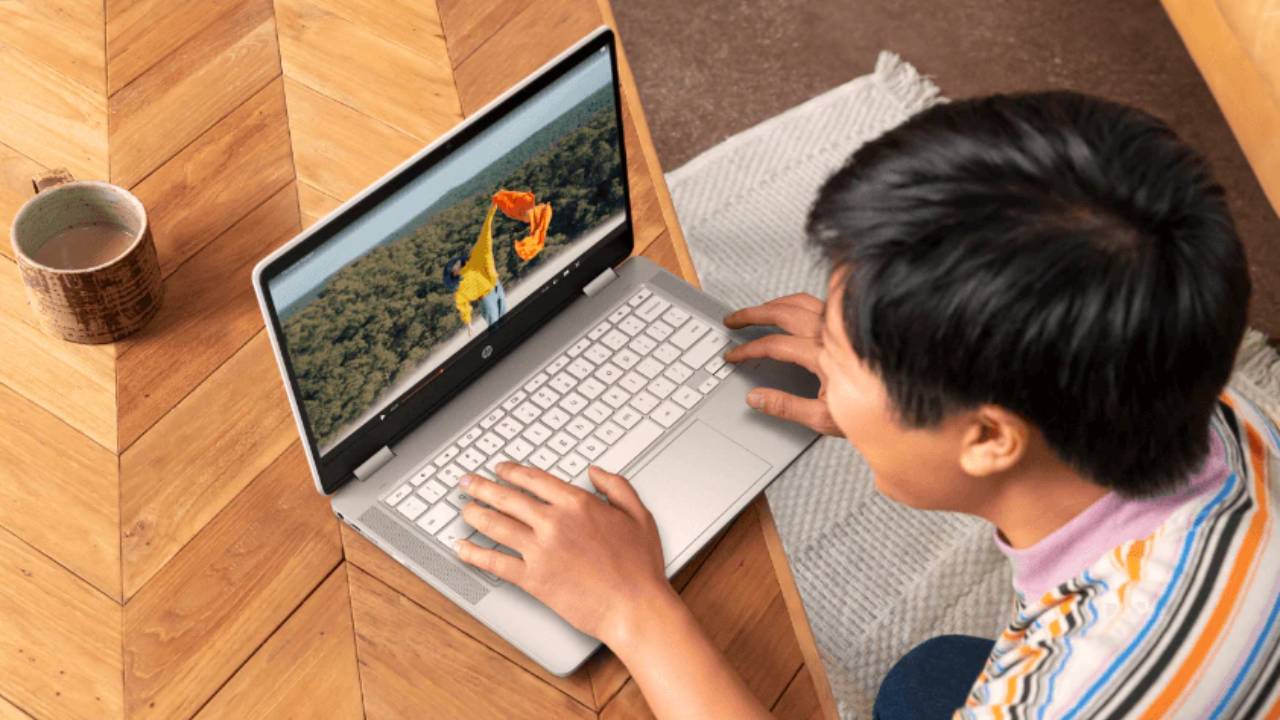
Before you knuckle down for another academic year, you’ll need to make sure you’ve got all the right kit to help you get the work done, which is exactly the reason for T3's Back to Class month.
Over the whole of August, you'll be able to pick up ideas and recommendations for all the best laptops, tablets, headphones, office accessories and fitness equipment that you’ll need in the coming months.
One of the first things any student will need is a laptop, and if you’re on the lookout for a new portable PC then you might be wondering whether one of the best Chromebooks could be the way to go instead of one of the best Windows laptops.
There are plenty of reasons why I think you should take the plunge and buy a Chromebook – not least being the typically lower price, and I've highlighted three top buys at the end of this article – but there are also a couple of reasons why some people should probably not buy one. Let me explain...
Reasons to buy a Chromebook
1. They're more affordable

The main reason to buy a Chromebook is that more often than not, they’re a fraction of the price of any other type of laptop. Part of makes them so affordable is that they don’t tend to pack in lots of storage space. Instead, Chromebooks store your apps and files in a secure space online, and they often leave out some more advanced features such as a touchscreen or a fingerprint scanner.
You can buy a decent Chromebook, like the Lenovo Chromebook Duet, for as little as £200/$300 if you’re willing to sacrifice some power. Or if you’re looking for a bit of a workhorse, more powerful Chromebooks are still cheaper than a lot of Windows laptops. For example, this Acer Chromebook 516 GE is speedy enough for gaming but will only set you back about £750/$500 which is a lot cheaper than any of the best gaming laptops out there!
2. Your work will be backed up to a cloud

You’re pretty unlikely to ever lose any of your hard work if you use a Chromebook because everything will be backed up to your Google Drive as you go, as long as you’re connected to the internet that is (otherwise it's saved on the machine itself, too, so no worries).
Each Chromebook comes with 100GB of online storage space with Google One, which will be plenty for those who plan to write essays and coursework or do research on their laptop. You’ll be able to use that to backup your photos from your phone too. And if you were to run out of storage, there are options to expand it up to 1TB or 10TB (but it costs extra, of course).
What’s also great about them being cloud-based is that you’ll be able to easily and automatically access all of your work from your other devices, without the hassle of having to tweak your device’s settings or manually upload your files.
3. Chromebooks have great battery life

Chromebooks use ChromeOS, a light but speedy operating system which doesn’t rely so heavily on the CPU and RAM, so the battery life tends to be better. That'll come in handy for anyone who needs to use their laptop out and about like on the train to school, in the library or during on-campus lectures.
Some Chromebooks, like the Google Pixelbook Go and the Acer Chromebook Vero 514 lasted about 9 hours of general use between charges in our tests – both are miles ahead of the 4-to-5 hours offered by the majority of Windows laptops.
Because Chromebooks don’t need as much hardware under the hood, it’s easy to find lightweight options too. Again, that's something a lot of students will benefit massively from.
Reasons not to buy a Chromebook
1. You need to be connected to the internet

One major drawback of using a Chromebook is that you’ll need to be hooked up to an internet connection to access everything it has to offer. It's no longer essential to always be connected (which was required on day one when the products launched), as you can save work on the machine, but not everything is available without a connection.
Of course, you can still use some apps offline, including most Google apps including Docs and Sheets, but a lot of others won’t be available. And because everything is stored on your Google Drive, you won’t be able to back up or open your files without a connection either. That'll just be a case of waiting for a connection for your work to then backup though.
2. Chromebooks have limited apps and software

When you set up your Chromebook, you’ll choose which apps and software you’d like to use from the Google Play Store, which means that you won’t get as much choice as you would on a Windows PC (you can't install an EXE file on a Chromebook, ultimately).
Some popular apps and services simply aren’t available for ChromeOS – including a lot of photo and video editing apps like Adobe Photoshop. You won’t be able to find a lot of popular games either.
The best Chromebooks to buy in 2023
1. Best for most students: Google Pixelbook Go
Most students looking to buy a Chromebook will be happy with the Google Pixelbook Go. It makes sense that ChromeOS would work best on Google's own device and this one proved to be more than capable for everything from word processing to Netflix streaming when we tested it out. Find out more about it in our Google Pixelbook Go review.
2. Best premium Chromebook: Acer Chromebook 516 GE
If you're willing to splash out a little then the Acer Chromebook 516 GE packs in plenty of power – which will be a blessing for students with heavier workloads, or for those who intend to play a few games when they're avoiding deadlines. In our Acer Chromebook 516 GE review, you can read more about how we got on with this gaming-focused laptop.
3. Best budget Chromebook: Lenovo Chromebook Duet
Students with a smaller budget should consider the Lenovo Chromebook Duet. It'll be perfect for those who don't spend too much time typing, as its 2-in-1 nature means you can use it as a tablet too, and so who don't need a top-performing PC. In the Lenovo Chromebook Duet review, we thought it did exactly what we needed it to, saying: "it's well-priced, has a good screen and works well as a tablet too".







